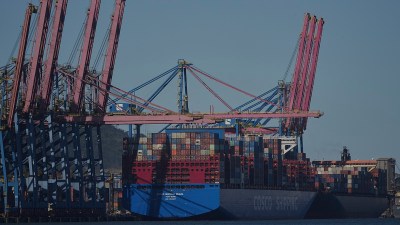Delhi has 19,000 illegal borewells — close to half remain open
Delhi has been reeling under a water crisis in recent months, with a war of words breaking out between Water Minister Atishi and L-G V K Saxena after a woman was killed during a quarrel that started over the use of a common tap in East Delhi.
 The DPCC was directed at the meeting to expedite the recovery of cost imposed, while the DJB was asked to improve efficiency in water supply by preventing leakages.
The DPCC was directed at the meeting to expedite the recovery of cost imposed, while the DJB was asked to improve efficiency in water supply by preventing leakages. A report filed in the National Green Tribunal (NGT) has highlighted Delhi’s worst-kept secret — illegal extraction of water. As per this report, submitted by the Delhi Jal Board (DJB), over 19,000 illegal borewells have been identified but only around 11,000 have been sealed so far.
The highest number of such cases was seen in Northwest Delhi. Authorities in Northeast Delhi were not able to identify any illegal borewells (see box). While data showed over 20,000 illegal borewells, many were termed duplicate entries/not traceable. Actual number of illegal borewells in the city is anticipated to be much higher and water table in several areas that lie at a distance from Yamuna has dipped drastically over the years, experts said.
Delhi has been reeling under a water crisis in recent months, with a war of words breaking out between Water Minister Atishi and L-G V K Saxena after a woman was killed during a quarrel that started over the use of a common tap in East Delhi.
Extraction of groundwater is not allowed in Delhi without prior permission of the competent authority. The Deputy Commissioner (Revenue) in each district is required to supervise illegal groundwater extraction through Sub-Divisional Magistrates, and the Delhi Pollution Control Committee is required to assess environmental compensation, according to the Environment Department’s standard operating procedure on regulation of groundwater extraction.
The matter was first raised before NGT’s Principal Bench in 2022, wherein the applicant, Pritipal Sharma, had asked that the Tribunal issue directions to seal illegal borewells on two plots in Aya Nagar, from where groundwater was being extracted and supplied to residents through water tankers at a cost. DPCC imposed an environmental compensation of Rs 9.46 lakh on the operator of the borewells earlier this month.
Noting that it found “serious deficiencies in the working of governmental agencies assigned the task of taking remedial action on complaints regarding… illegal borewells in Delhi,” the Tribunal had, in March, directed the DJB to file a status report on all illegal borewells identified and closed in the city. It had also asked the DPCC to submit details on environmental compensation that had been imposed, collected, and utilised, and directed the Chief Secretary to convene a meeting to ensure remedial measures are taken.
The DPCC told the Tribunal this week compensation of Rs 70.65 crore was imposed, but only Rs 53 lakh has been recovered from just 121 violators. The cost was imposed in 18,481 cases. The DPCC has used the amount on “development of infrastructure for water quality surveillance” pertaining to ground water.
Following the directions of the NGT, the Chief Secretary held a meeting on April 12 with officials of the DJB, the MCD, the DPCC, the Revenue Department, Delhi Police, and UD Department.
Post this, the DJB and Revenue Department were directed to take action on illegal borewells in areas that “are overexploited or where extraction of water is being used for profiteering,” and “accord permissions where water table is satisfactory and water is potable.”
“Illegal extraction also occurs when… permission is not given, even where it is feasible,” read the minutes of the meeting.
The DPCC was directed at the meeting to expedite the recovery of cost imposed, while the DJB was asked to improve efficiency in water supply by preventing leakages. The amount collected as compensation for illegal groundwater extraction is to now be utilised for rejuvenation of water bodies.
Going by the minutes, “recovery of EC (environmental compensation) is poor,” “District Magistrates stated that there is a need for verification of data of illegal borewells, as addresses are incomplete and vague, and “they also stated that they sometimes face strong objection from the public while sealing borewells… this is due to failure of DJB in providing drinking water.” The matter is listed for hearing before the NGT Thursday.
In a separate matter before the NGT, DJB said in 2019 it had then identified over 19,000 illegal borewells.












